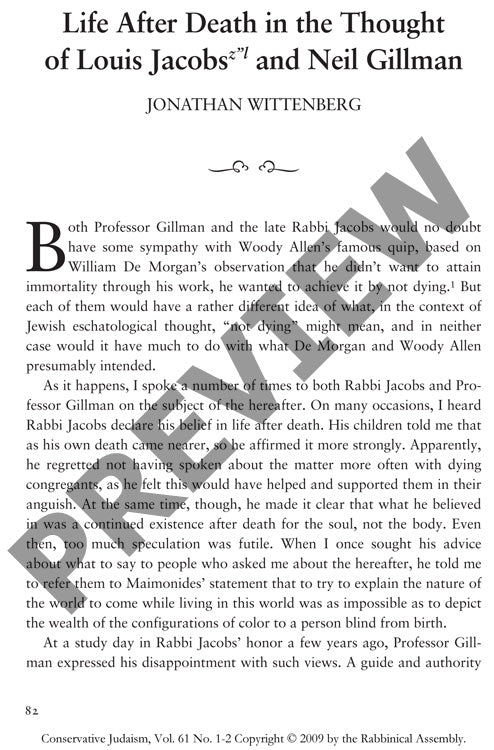Life After Death in the Thought of Louis
Couldn't load pickup availability
The quest to understand life after death has deeply divided modern Jewish thought, as powerfully illustrated in the contrasting views of Rabbi Louis Jacobs and Professor Neil Gillman on bodily resurrection versus soul immortality. Through textual analysis and personal conversations, their fundamental disagreements emerge from distinct intellectual foundations: Jacobs, grounded in traditional yeshiva learning before encountering modernism, champions soul immortality while rejecting bodily resurrection as philosophically impossible, following Maimonidean rationalism. Gillman, viewing Judaism through modern and postmodern lenses, argues that bodily resurrection remains essential for preserving individual identity and affirming divine omnipotence. Comparative theological analysis of primary texts, including Jacobs' "Principles of the Jewish Faith" and Gillman's "The Death of Death," supplemented by personal correspondence, reveals how both scholars transcend simplistic notions of immortality as mere memorial legacy, instead affirming meaningful individual survival beyond death. Their theological divide reflects broader tensions between traditional Jewish thought, modernity, and postmodernity, while underscoring shared commitments to individual dignity and divine justice in contemplating the afterlife.

More Information
-
Physical Description
-
Publication Information
Published 2008-2009
ISBN
-
Publication Credits
Jonathan Wittenberg

